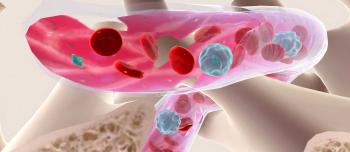Novo Nordisk recently announced results from the Bridging Hemophilia B Experiences, Results and Opportunities into Solutions (B- HERO-S) study. The results were presented on July 26, 2016, at the 2016 World Congress of the World Federation of Hemophilia (WFH) in Orlando, FL. These findings showed that many children and adults living in the US, even those with a less severe form of the disorder such as mild or moderate hemophilia B, experience a negative impact on their career, education and recreational activities.
According to a Novo Nordisk news release, a large number of respondents with mild/moderate hemophilia B completed the survey, including affected women and parents of affected girls. Survey questions for women were distinctly tailored to include the types of bleeding symptoms unique to women, making B-HERO-S an unprecedented opportunity to study the psychosocial impact of mild-moderate-severe factor IX deficiency in both women and men.
Key data highlights presented at the meeting include:
Impact on Disorder Management
- 79% of adults with hemophilia B were on some form of routine factor infusions, but only 27% were responsible for their own care. Many rely on hematologists (55%) and nurses (12%) for regular care.
- 65% of children with hemophilia B were on routine factor infusions. Responsibility for care was typically with the responding caregiver, family member or child (73%).
- 52% of the adults with hemophilia B have had issues with access to factor due to availability or affordability in the past five years; 78% have concerns about access in the next five years. In addition, approximately half (53%) of caregivers of children with hemophilia B have had difficulties obtaining factor in the past five years due to concerns about the availability or affordability. Further, 69% have concerns in the next five years.
Impact on Recreational Activities
- Nearly all of the adults (98%) with hemophilia B reported a negative impact on engagement in recreational activities. A majority made moderate to significant changes in their treatment plan to participate in particular recreational activities.
- Most caregivers (90%) reported a negative impact of hemophilia B on their child’s engagement in recreational activities. A majority reported making significant to moderate changes in treatment to accommodate particular recreational activities.
Impact on Education and Work
- Nearly all participating adults (94%) with hemophilia B reported a negative impact on their education, including difficulty concentrating, attending school or participating in activities due to their disorder.
- Nearly all participating adults (95%) described a negative impact of hemophilia B on their working life. Most caregivers (89%) and their partners (84%) also reported that caring for a child with hemophilia B had a negative impact on their work.
“The B-HERO-S study brought to light many challenges faced by some patients with mild/moderate hemophilia B, including affected women and girls,” said Michelle Witkop, DNP, FNP-BC, Northern Regional Bleeding Disorder Center in Traverse City, MI. “With hemophilia treatment centers (HTCs) and local hemophilia chapters focused on proactive education in people with severe hemophilia and their families, B-HERO-S data tells us we need to make sure that those with mild/moderate hemophilia B come to the HTC for routine visits so that we can proactively address issues that might come up in school, activities and career choice.”
Source: Novo Nordisk press release, July 26, 2016





